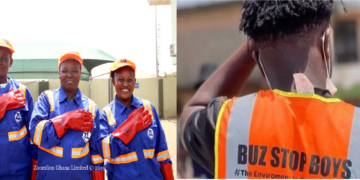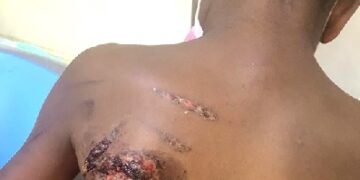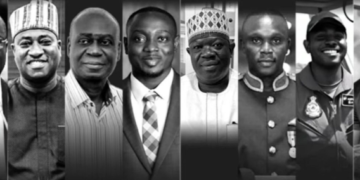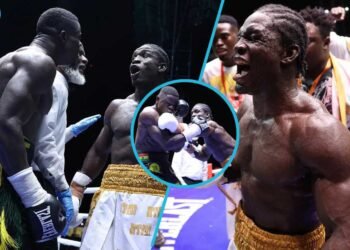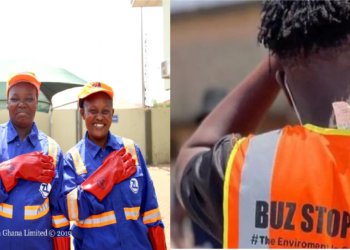If you are reading this article in Ghana, then you must be doing so via the Internet. You are among the privileged Ghanaians that have access to the Internet. Congratulations! Ghana has an estimated mobile penetration of 111%, with an Internet penetration of 19% and mobile broadband penetration of 50% (according to ITU, Ghana occupies the first place in mobile broadband penetration in Africa). Okay let’s pause for a minute! What does all those figures mean? Can it be broken down? Of Course! Ride along as we Facts-Track Ghana’s Internet highway;
- Ghana had full Internet connectivity in August 1995. The nation became the second in Sub-Saharan Africa to attain that feat. Of course South Africa was first; which country were you expecting?
- Cooperation among several organizations, including Network Computer Systems (NCS), Pipex International, The Ministry of Transport and Communication, Ghana Telecom (now Vodafone), and British Telecom brought about this historic achievement.
- The enormous effort to get Ghana fully connected was led by Dr. Nii Quaynor, CEO of NCS.
- For this feat, Dr. Quaynor is nicknamed the “Father of Africa’s Internet”. He was inducted into the Internet Hall of Fame in 2013.
- NCS was the first Internet Service Provider (ISP) in West Africa. This strengthened Ghana’s position as the gateway to West Africa.
- Early days ISPs included, AfricaOnline, Internet Ghana, Legon FidoNet, GhanaNet, HealthNet and CHASTINET.
- Most of the early days ISPs provided email-only checking services.
- Legon FidoNet was a time-lagged email only service. Email download and forwarding service happens 3x daily (7am, 12pm and 7pm).
- Cost of having an Email ‘Internet’ Service ranged between GHc 2 – 5/month then.
- Balme Library at the University of Ghana was the first Library in West Africa to get hooked to the Internet.
- In the late 90s and early 20s having an Internet connection at home/office was a ‘luxury’. In order to gain internet access, you may be asked for several documents such as Proof of identity (passport or voters’ ID), a residents permit, proof of a residential address in Ghana (proof of your billing address), a Bank statement. Internet Cafés were the place to go for the ‘ordinary’ Ghanaian. Operating an Internet Café was a big venture then.
- The first Internet Café in Ghana was Wplus Mega Internet Café at Ring Road, Accra. WWWPlus, an Internet Service Provider, owned it.
- To be an ISP in Ghana currently, a license must be obtained from the National Communication Authority (NCA). NCA was established in 2008 through the 769th Act of Parliament.
- GISPA, Ghana Internet Service Providers Association a non-profit trade association represents the interest of local ISPs. As at September 2014, GISPA has 24 members.
- Back in 1995 when Ghana got connected to the internet, the fastest Internet speed was running at 28kbs. Connections were via dial-up modems. Use that today and it will take you 10+ minutes to view a profile picture on Facebook.
- Fast-forward to 2014 and the average household download speed is 5.8 Mbits/s, according to a NetIndex Report in February. This is the 3rd Fastest Speed on the African Continent and 110th out of 188 countries Worldwide. Yes you read right! 3rd in Africa and 110th in the whole world. Phew! Africa’s Internet is very sloooow!
- Today, mobile broadband is the most common means of accessing the Internet. Many Ghanaians use dongles and phones to access the Internet. Fixed broadband is not common partly due to the cost of subscription and the long processes involved in getting connected.
- Unless it’s via a dedicated broadband service, fixed broadband is very unreliable and incredibly slow. Customers could experience internet-blackout for weeks ‘due to technical errors’.
- A customer cannot sue the fixed broadband provider, Vodafone, for loss incurred as a result of unreliable or intermittent Internet service. Vodafone made sure of this in their Fixed-Broadband Terms and Conditions.
- Fixed broadband is fairly stable and relatively fast in the evenings and weekends.
- As at December 2013, fixed broadband subscription was 68,795.
- Mobile data subscription as at August 2014 was 14.6million. This number represents 50% of the nation’s 29.5 million mobile line subscribers. MTN Ghana commands 55% of mobile broadband subscription.
- All 6 licensed Mobile Telecom Providers in Ghana have Mobile Broadband packages with Monthly and Pay-as-you-go plans.
- In May 2012, Tigo became the first Telecom Provider to launch an Unlimited 3G Mobile Internet Browsing Package. There was a GHc0.99 daily Unlimited Browsing bundle. This ‘Unlimited’ package came with some terms and conditions though. Speed is throttled after ‘some gigabytes’ of download/upload. Nevertheless, this aggressive data plan set the tone for competitive data pricing and a sharp increase in mobile data usage.
- The NCA issued the nation’s first 4G-LTE license to 3 Providers in March 2013; Surfline, Blu Telecom and GoldKey at a cost of $6million. The 3 providers were given a November 2014 deadline to launch or loose license. Surfline and Blu launched services in August and October 2014 respectively. 4G-LTE coverage for both providers is limited to Accra and Tema for now.
- The NCA in 2013 refused to grant 4G-LTE licenses to any of the 6 existing Telecom providers. Reason? To quote the then acting Director of NCA, Mr. Albert Enninful “If we give it to the mobile operators they might use the frequency to do other things and not work on the 4G as the way we wanted.….. even with the 3G they still have problems with it. We don’t want to add additional stuff to them to basically cripple the environment”
- According to InternetLiveStats figures, there are 5.1million Internet users in Ghana. This number represents 19.6% of the country’s 26million Population. Hey! wait a minute! Didn’t we say earlier that there are 14.6million mobile data subscribers? Yes you are right! The 5.1 million actually represent the unique number of Ghanaians that access the Internet via mobile broadband or fixed-broadband. From this number, a user can owe 1 or more dongle or SIM card for accessing the Internet via a mobile telecom provider. It sounds confusing? Agreed! But read and digest again.
- There are no Government restrictions on access to the Internet or reports that the government monitors e-mail or Internet chat rooms without judicial oversight.
- However, in 2002 the government of Ghana censored Internet Media Coverage of tribal violence in Northern Ghana.
Phew! That was a long ride! The first episode of facts examined connectivity and accessibility. The Second and Final episode will be exploring usage; facts like how many Ghanaians on Facebook, what is the most popular website, the most searched personality, etc!
Facts Compiled by: Divine Puplampu [Facebook | Twitter ]
Image: Mozilla-Ghana



